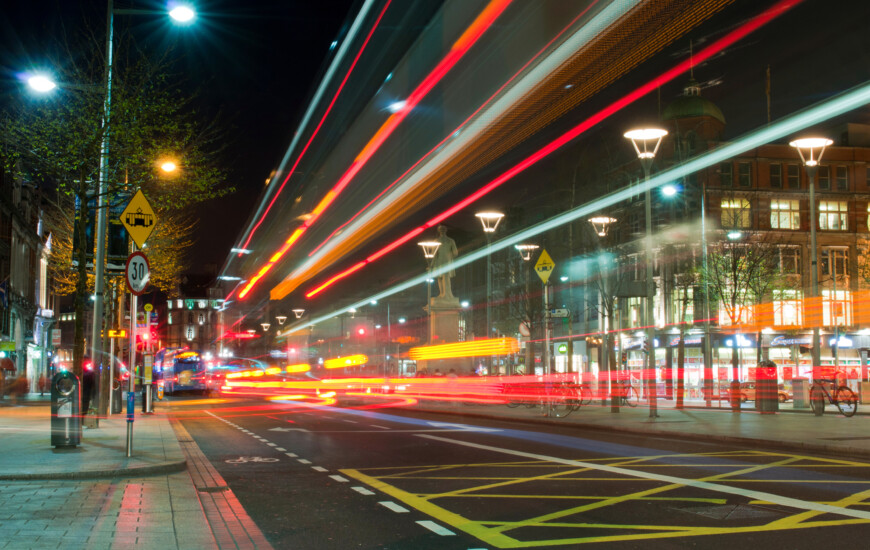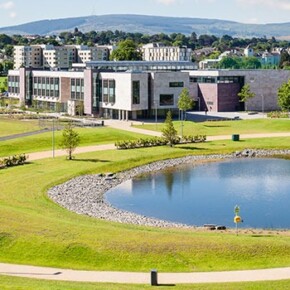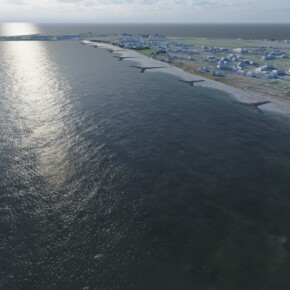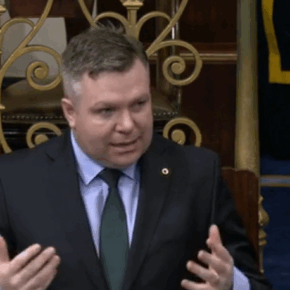What the Progamme For Government means for Dublin
Mike Finnerty 22 Jan 2025
November’s general election has seen a repeat of the coalition that governed Ireland between 2020 and 2024, returning to office with a cohort of independents backing the government instead of the Greens.
January 15 saw the draft Programme for Government published and January 22 will see the new coalition vote in Micheál Martin as Taoiseach when the Dáil meets again after the Christmas break.
While the exact make-up of the Cabinet is yet to be disclosed, the coalition agreement has a number of details pertaining to Dublin.
The 162 page-document outlines what the new government wants to achieve over the next five years (in negotiations, outgoing Taoiseach Simon Harris emphasised that he wanted the new government to be one that delivers five Budgets) and the document mentions all matter of Dublin-related topics such as the Metrolink, rejuvenating the city centre as well as the possibility of bringing in a vote for a directly-elected mayor.
Public transport still remains a top public priority despite (or in spite of) the Greens’ electoral wipeout, and the document says that the government is committed to bringing in contactless payment on public transport.
News that an airport-style security service for public transport is also included in the Programme For Government, a move that has been welcomed by both government and opposition alike.
The document also states that the government will “work with the National Transport Authority to improve the punctuality and reliability of inter-city and commuter rail services coming into Dublin city and grow additional capacity.”
In terms of Metrolink, the new government said they would commission an independent feasibility study which would look to expand the MetroLink from the city to South West Dublin.
The passenger cap at Dublin Airport, still a point of contention, is also mentioned in the document with the new government looking to “work with stakeholders to achieve our objective of lifting the passenger cap as soon as possible.”
Healthcare was a defining issue in the election – Simon Harris’ Kanturk howler and Stephen Donnelly losing his seat is a testament to that – and upgrades to Dublin’s healthcare features in the document.
The document calls for two new elective hospitals and surgical hubs to be built in the Dublin area, but in terms of the long-delayed National Children’s Hospital it simply says “open the National Children’s Hospital” with no clear timeframe given.
In a way to counterbalance Dublin’s power, the government is looking to have at least half of IDA investments located outside of Dublin, and “prioritise” locating new state agencies in towns and cities outside of Dublin.
A whole segment of the document is dedicated to “rejuvenating Dublin city centre,” which looks to build upon a plan commissioned by Simon Harris shortly after he became Taoiseach last April.
Increased CCTV coverage, targeted response to reduce open drug use to ensure a safer
environment for all, fast-tracking planning for mixed-used development on O’Connell Street and redeveloping the GPO feature in the document.
The government has said they want to “honour the historic significance of the GPO with a redevelopment plan, reinforcing its role as a central landmark in Dublin.”
On the Southside, the government has also looked to secure funding and resources for the National Concert Hall to “enhance this vital cultural institution.”
Extended opening hours also mentioned in the document as a way of revitalising Dublin city nightlife, both Northside and Southside, with the Night-Time Economy Bill, drawn up by outgoing Minister For Arts and Culture Catherine Martin late last year, set to be enacted by the government.
The document calls for an Urban Communities Initiative, which, in plain English, translates to a government desire to “revitalise disadvantaged city areas” by ramping up community development and state-provided youth programmes.
On-street charitable services, such as soup kitchens, are also going to become “properly regulated” under the new government.
Dublin Town CEO, Richard Guiney broadly welcomed the pledges, saying they are “critical” to the Dublin city centre having a “meaningful” future.
“The commitments contained in the Programme for Government are a vital step along the road in the rejuvenation of Dublin City Centre, but they must be implemented,” he said.
Former Lord Mayor of Dublin and newly-elected TD for Dublin Bay South, James Geoghegan said “the inclusion of the Dublin Taskforce in the Programme for Government is a big win for the capital city and is essential to delivering a safe and clean city that we can all be proud of.”
“We need to ensure, however, that Dublin city receives the necessary levels of public and private investment to reduce vacancy and dereliction in areas which have become a hive for illegal activity and anti-social behaviour,” the Fine Gael TD said.
Fianna Fáil TD Jack Chambers, who served as the party’s lead negotiator for coalition negotiations, said “the document contains positive, progressive & ambitious measures to grow our economy, enhance public services & invest in infrastructure for the future.”
Social Democrats’ acting leader Cian O’Callaghan praised the implementation of the Dublin City Centre Taskforce, but said by and large, he’s not a fan of the “conservative coalition.”
“What we see in this draft Programme for Government is a lot of tinkering around the edges and much more of the same, when it comes to failed Fianna Fáil and Fine Gael policy.”
People Before Profit’s Paul Murphy was succinct in his criticism of the coalition agreement – he dubbed it ‘Programme for Big Tech.”
He says the coalition agreement “represents a huge threat to environmental sustainability and to those who are resisting climate breakdown and injustice.”
The People Before Profit TD said the government relying on data centres to further advancement in AI is a “recipe for disaster.”











